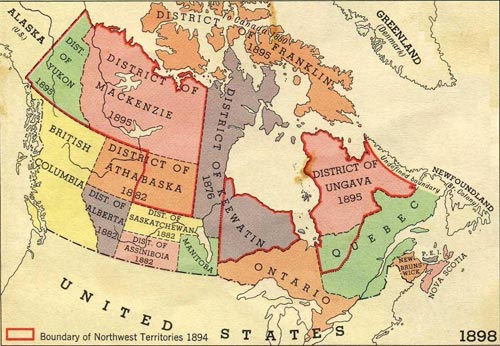
Much of Canada’s history can be found outside the history books. In fact, you could probably learn most of our nation’s past from Stan Rogers, Gordon Lightfoot and Tragically Hip songs. Traditional Canadian folk music tells the stories, trials, tribulations and pleasures settlers experienced while traveling across the country hundreds of years ago. There are dozens of songs devoted to each province, but here’s a modest list of a few beloved Canadian folk tunes that continue to resonate among families and friends.
The Log Driver’s Waltz
Wade Hemsworth’s The Log Driver’s Waltz has been a long time Canadian favourite throughout generations. The song illustrates the practice of log driving where men on logs ran and “birled” from one log to another in an effort to guide their timber to a saw mill downstream. Hemsworth’s inspiration for the song was drawn from the similar movements he observed between log driving and dancing. In 1979, the National Film Board of Canada produced Canadian Vignettes: a series of five minute videos to be included between children’s programs. The Log Driver’s Waltz still remains the most popular vignette where it’s sometimes played on CBC and other Canadian networks between shows.
Barrett’s Privateers
We celebrate Stan Rogers’ sea shanty Barrett’s Privateers which is often sung in East Cost university pubs and around campfires. An unofficial anthem of the Royal Canadian Navy, this song covers a somewhat accurate history of privateering in Canada (although privateering wasn’t nearly as violent as depicted) with the mention of Halifax, Nova Scotia as a popular destination for privateers. Rogers’ sets his song in the height of the American Revolution in 1778. He tells the tale of a 23-year old privateer who boards Encid Barrett’s vessel called the Antelope destined for Jamaica. Rogers often references Sherbrooke, Quebec as the young man’s far away home. The tale ends tragically as the sailor loses both his legs when his ship is attacked, leaving him “a broken man on a Halifax peer.”
V’la L’bon Vent
V’la L’bon Vent, which translates as “Go Good Wind” is a 300-year old French-Canadian song with one hundred verses. It was sung by French voyageurs and woodsmen who traveled by canoe across the provinces. This folk song helped travelers to both maintain a consistent paddling rhythm and keep their spirits up since they would spend up to 18 hours journeying over water.
Farewell to Nova Scotia
Another song which celebrates the East Coast is the traditional tune Farewell to Nova Scotia. This song has been sung by Nova Scotia natives since the beginning of the First World War. Although the author remains unknown, it is suspected that the British war poem “The Soldier’s Adieu”, which first appeared in a Glasgow newspaper in 1808, was the inspiration behind the song as many lines from the poem are used in the lyrics.
The Wreck of the Edmund Fitzgerald
In more recent history, Gordon Lightfoot’s The Wreck of the Edmund Fitzgerald was a number one hit back in 1975 that commemorated the sinking of the bulk carrier on Lake Superior during a fierce gale in the same year. Lightfoot struggled to put together words for the song as he wanted to be sure the lyrics accurately depicted the wreckage, but a friend told him to just tell a story. As mentioned in the song, the Mariners’ Church of Detroit rings their bells 29 times every year to honor each life that was lost in the wreck.
Escarpment Blues
Celebrating our own Hamilton treasures, Burlington’s Sarah Harmer sung of her worries in her song Escarpment Blues. In fact, this work sparked a concert tour called “I Love the Escarpment” in promotion of P.E.R.L. (Protecting Escarpment Rural Land) and was title of the Juno winning documentary in 2007. The song speaks of quarry development along the Niagara Escarpment and our vital connect to its animals and ecosystems.